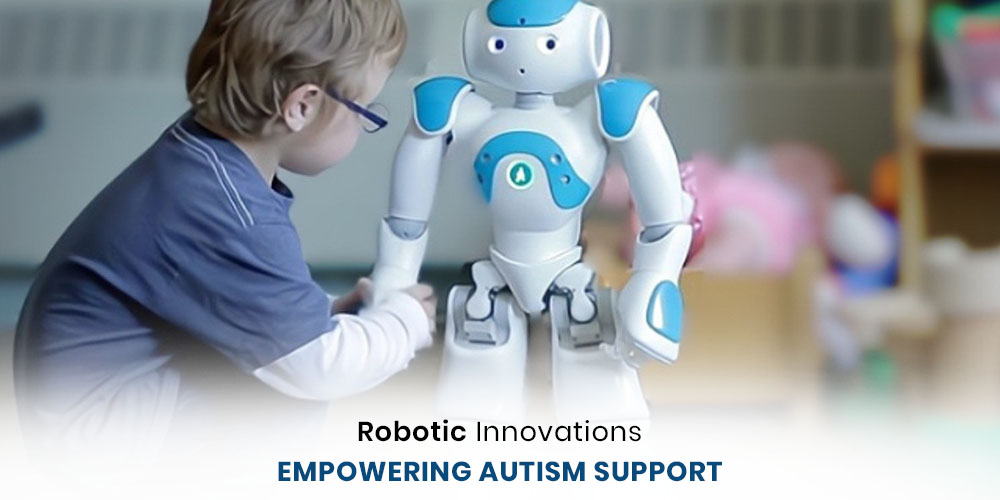Experts Emphasize the Benefits of Physical Activity for Individuals on the Autism Spectrum
Students Utilize Robotics and VR to Enhance Interaction for ASD Children
Autism Spectrum Disorder (ASD) is a developmental condition that impacts how individuals communicate, interact, and perceive the world around them. Children with autism show a diverse range of strengths and challenges. It is a life-long condition, with symptoms typically emerging in early childhood. Individuals with autism may have distinct learning styles, attention patterns, and reactions to sensory experiences.
According to estimates from the CDC's Autism and Developmental Disabilities Monitoring (ADDM) Network, approximately 1 in 36 children has been identified with Autism Spectrum Disorder (ASD). To support children on the autism spectrum, students from Poland and Japan created innovative projects that were highlighted using the Design-4-All space. This collaborative effort emerged from a partnership between Lodz University of Technology and Shibaura Institute of Technology, which jointly organized a global Project-Based Learning (PBL) experience. Students from both institutions immersed themselves in cutting-edge technologies like robotics and virtual reality (VR). According to the event organizers, Dr. Hab. inż. Grzegorz Granosik and Dr. hab. inż. Dorota Kamińska from Lodz University of Technology, mid-week project presentations showcased the students’ hard work, creativity, and diverse ideas.
The closing event had a panel of experts, including the Vice-Rector for Development, Professor Paweł Strumiłło, specialists in the field, and parents of children with ASD. The presentations demonstrated student’s commitment, strong graphic design, and technological sophistication. The cooperation and cross-cultural exchange of ideas throughout the event were commendable. Three standout projects were recognized: Cyber Dragons took 1st place, Japonica Polonica Robotica came 2nd, and Seaboat secured 3rd place. The winning team created a dragon-shaped robot designed to enhance interaction and development for children with autism. This innovative robot, equipped with a camera that streams live video to VR goggles, allows users to control their movements remotely.
Users must engage with the virtual environment through physical gestures, creating a more immersive experience. The significance of this project lies in its focus on promoting motor development and encouraging natural interaction, tailored specifically to the needs of children with ASD. By integrating VR technology, the robot offers an exciting and accessible way for children to engage in meaningful activities that can better motivate them. The projects were closely aligned with the hackathon’s theme of promoting physical activity among individuals on the autism spectrum. Experts highlight that a balanced diet combined with regular exercise can greatly improve motor coordination, concentration, and cognitive abilities, while also helping to reduce anxiety and hyperactivity. Participation in physical activities and team sports can further support the development of social skills for those with ASD.
Editor's Note:
The collaboration between Polish and Japanese students to create innovative projects for children with autism spectrum disorder is remarkable. The inclusion of the dragon-shaped robot and VR integration offers unique ways for children to interact and learn. Through a global Project-Based Learning initiative, these students harnessed cutting-edge technologies to create impactful projects aimed at enhancing interaction and development for individuals with Autism Spectrum Disorder (ASD). By addressing the specific needs of these children, the initiatives promote social engagement, motor development, and personalized learning experiences. Moreover, these efforts not only demonstrate the creativity and commitment of young minds but also highlight the importance of cross-cultural collaboration in addressing social challenges.
Skoobuzz congratulates the team for providing immediate benefits to children with ASD and for setting a precedent for future innovations in special education.














0 Comments (Please Login To Continue)